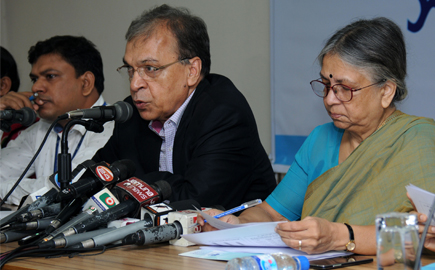Published: 28 August 2019


Published: 28 August 2019

 According to the study, people’s participation in enactment of laws could not be ensured adequately as all requests for seeking public opinion on proposed bills were rejected by voice vote as practiced earlier. According to the ratio of time spent in various sessions of the Parliament, most of the time was spent on activities related to establishing public representativeness and accountability (60%). The study also pointed higher presence of female lawmakers in Parliament compared to their male colleagues although their participation in formulating laws was lower.
According to the study, people’s participation in enactment of laws could not be ensured adequately as all requests for seeking public opinion on proposed bills were rejected by voice vote as practiced earlier. According to the ratio of time spent in various sessions of the Parliament, most of the time was spent on activities related to establishing public representativeness and accountability (60%). The study also pointed higher presence of female lawmakers in Parliament compared to their male colleagues although their participation in formulating laws was lower. Copyright © 2025 Transparency International Bangladesh